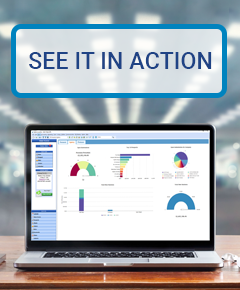Agency Operations, Perpetuation
 Planning for your exit from the independent insurance agency you helped build, whether passing it on to family or not, is rarely an easy task. However, succession planning is a necessary part of running a successful business, and it’s important to start the process sooner rather than later.
Planning for your exit from the independent insurance agency you helped build, whether passing it on to family or not, is rarely an easy task. However, succession planning is a necessary part of running a successful business, and it’s important to start the process sooner rather than later.
Two major factors to consider when succession planning are who will be involved and what components need to be included in your plan.
Who to include:
- Business attorney
- Tax professional
- Successor(s) (internal or external)
- Spouse and/or other family members involved in agency operations
Your list may expand beyond these key people, such as partners or advisors, but be careful not to include too many ideas and opinions. Although it is helpful to solicit the advice of others, ultimately you are the decision maker for your agency.
What to include:
- Total cost of your agency: this should be revised regularly, including any outstanding debt.
- Impact on employees: are there staff that will be leaving when you do? Staff you want to stay? You may want to “bonus out” the first group and provide a “stay bonus” (i.e. 50% more than a usual bonus) for the second.
- Client care plan: Think about how to inform clients of your departure. This should include a transition plan for introducing clients to your successor. It’s important to have little to no interruption in client care.
- Mentorship for successor(s): It’s best to have two successors for each principal owner. Look for younger agents so they have a longer potential tenure at your agency. Be intentional about mentoring these successors, including bridging the relationships you’ve built over the years and passing them on.
- Your goals: These will differ by owner and, with multiple owners, may involve some compromise. Be clear about what you want whether it be a certain amount of cash intake, continued involvement in agency decision making, or a distinct perpetuation of agency culture.
When it comes time to roll out your succession plan, make sure you’re ready to retire. Although you may stay involved in your agency’s operations and/or decision making, it’s important to be prepared to spend less time focused on your agency. Invest in other interests, setting yourself up for success in other ventures.
Moving on from your agency can be difficult, especially because of the relationships you’ve built with your employees, partners, and clients. We at SIS value such relationships, which is why we provide pieces such as this for our clients and partners. We realize your agency is more than just a business, and treat it as such with our dedicated staff and individualized client care. To find out more about the SIS community, visit our website or contact us at [email protected].
Agency Operations, Perpetuation
 As we delve into our second post focused on succession planning, we look towards addressing when to start planning and where to go given the multiple tracks for exiting your independent insurance agency.
As we delve into our second post focused on succession planning, we look towards addressing when to start planning and where to go given the multiple tracks for exiting your independent insurance agency.
When to Start Planning
As with most big decisions, it is never too early to start planning. According to a recent Property 360 article, it’s best to start considering your exit plan in your 30s. However, most owners make the mistake of waiting too long, not starting the process until their late 50s or 60s.
The reason it’s suggested to start planning early is so you can avoid having too many individuals leave at one time. You want to ensure there is a steady flow of retirees, leaving time for new, young agents and other employees to be trained. Similarly, your plan needs to be continually updated as employees come and go, and as your agency’s market value changes.
Where to Go
As mentioned in our last post, there are multiple exit options for you and your agency. Each has its own benefits and drawbacks, and it’s important for you to explore which is best for you.
Transfer to Family Member
+ Keeps agency in the family – May continue to be financially tied to agency
+ Perpetuates mission and values – Little to no cash gained
+/- Able to stay involved in agency operations – Cannot guarantee advice will be heard/heeded
Sell to Family Member or Employee
+ Keep up agency culture – Cash gain may be low
+ In competent, experienced hands – May continue to be financially involved
+ Some cash gain
Selling to Outside Party
+ Largest cash benefit – Loss of company culture
+/- Exit from involvement – May be damaging to employees
Retain Ownership and Move to Passive Role
+ Keep up agency culture – No cash gain
+/- Able to stay involved in decision making – Financial risk still attached
Take into account you and your agency’s specific needs and goals when making your decision. There are many options to face, but it is most important that you choose the option that is right for you.
SIS knows your agency’s unique needs, which is why we offer personalized service and customizable options with our Partner XE. Help us get to know your agency today – contact us today at [email protected].
Agency Operations, Perpetuation
 Planning for the next generation of leadership at an agency can be a combination of excitement, uncertainty and lots of critical conversations. In our next series of blogs, we’ll look at the who, what, where, when, why and how of succession planning. We start off with a question many have yet to ask—why?
Planning for the next generation of leadership at an agency can be a combination of excitement, uncertainty and lots of critical conversations. In our next series of blogs, we’ll look at the who, what, where, when, why and how of succession planning. We start off with a question many have yet to ask—why?
Why Start Succession Planning
The main reasons to create a succession plan are: relationships, money, and your business legacy.
Relationships are a big part of your agency’s success, and planning for your departure will make it easier to maintain these connections. Whether it be family, employees, or clients, making a plan means everyone will be ready for what happens next. This sense of readiness can establish clear expectations and address the emotions that are part of every agency transition.
Money is, of course, a huge portion of succession planning. There are certain tax implications attached to the different ways to transfer ownership of your agency. Plus, some ways will leave you with more cash than others. Your financial goals may differ depending on whether you’re selling to a family member, employee, or to someone not associated with your agency. It’s important to take your time researching the different options so you gain the most from your agency’s transfer or sale.
Legacy brings a sentimental piece to the table. You have invested a lot of time and energy in your agency, and you want it to continue for years to come. By planning ahead you can ensure your wishes are instilled in the future of your agency.
How to Start Succession Planning
The best way to start your succession planning is to consider your “exit strategy” options. These include:
- Transferring to family members
- Selling to family members
- Selling to one or more employees
- Selling to an outside third party
- Selling to other co-owners
- Retaining ownership, but moving to a passive owner role
Each scenario has its own benefits and drawbacks. For example, transferring to a family member and retaining ownership mean you may continue to have influence on your agency’s operations, but you will have little cash gain. Selling certainly means a cash gain, but requires letting go of influence.
Think about what elements are most important to you, and begin putting together your own succession plan. As part of your decision, look into the marketability of your agency and the tax implications related to your options. The Center for Exit Planning offers great resources in this arena.
Get more tips on succession planning from the SIS blog or connect with colleagues via our Partner XE user community. As always, contact us to share your comments and concerns – we love to stay in conversation!
Agency Operations, Cyber Security, Technology Trends
 As an independent insurance agency owner, your number one priority is your relationship with your clients. Clients trust you to provide them with the best service, and to keep them safe. This means ensuring their personal data is protected – a task that is not easy these days. With large scale cyber hacks dominating the news, your clients may be asking what you’re doing to keep their information safe.
As an independent insurance agency owner, your number one priority is your relationship with your clients. Clients trust you to provide them with the best service, and to keep them safe. This means ensuring their personal data is protected – a task that is not easy these days. With large scale cyber hacks dominating the news, your clients may be asking what you’re doing to keep their information safe.
Our latest eGuide addresses these issues of data security. In this guide we look at:
- Common cyber threats
- Tools and tactics for protection
- How to talk to your clients about cyber threats
- Utilizing cloud storage for increased security
Download the eGuide here, and check out some of our recent posts on cyber security. We at SIS are committed to data security, and utilize top-notch cloud security to ensure safety.
To find out more about how our Partner XE keeps your agency information protected, contact us at [email protected].
Agency Operations, Choosing an Agency Management System, Community
 Your clients are the most important part of your independent insurance agency. It is your relationship with these clients that drive your business. You think about their needs and reach out to provide the best service. It is this client service that is central to the success of the agency—both the clients themselves and the culture of your associates when they know customer care is the purpose of your business.
Your clients are the most important part of your independent insurance agency. It is your relationship with these clients that drive your business. You think about their needs and reach out to provide the best service. It is this client service that is central to the success of the agency—both the clients themselves and the culture of your associates when they know customer care is the purpose of your business.
Your relationship with your agency management system provider should be the same. Your agency should feel important to your provider and be reflected in their level of care. At a minimum your provider should offer:
- REGULAR SYSTEM UPDATES to ensure your agency is on top of the latest trends in the industry. These updates should be grounded in your agency’s needs and the needs of your clients.
- TARGETED TRAINING at the onset of system implementation and following updates. Multiple training options should be offered, including on site and online opportunities. These trainings should go beyond generic and be tailored to your agency.
- PERSONALIZED SERVICE where your provider knows not just your name, but your agency’s specific needs. The best providers offer a service team dedicated to your agency and schedule continual, consistent communication.
- CONTINUING EDUCATION via webinars, blogs, conferences, and connection with a user community. It’s important for these opportunities to be relevant to recent industry trends, ideally connected to your regular system updates.
Providers offering these elements show dedication to you and your agency. When your provider is able to serve you, you are in turn able to better serve your clients.
Client service is number one for us here at SIS, and our latest Partner XE is a reflection of that dedication. Our recent updates came straight from our clients, who each have a dedicated team listening and responding to their needs.
Get connected with our team today at 800.747.9273 or [email protected].
Page 3 of 50«12345...102030...»Last »

 Planning for your exit from the independent insurance agency you helped build, whether
Planning for your exit from the independent insurance agency you helped build, whether  As we delve into our second post focused on succession planning, we look towards addressing when to start planning and where to go given the multiple tracks for exiting your independent insurance agency.
As we delve into our second post focused on succession planning, we look towards addressing when to start planning and where to go given the multiple tracks for exiting your independent insurance agency. Planning for the next generation of leadership at an agency can be a combination of excitement, uncertainty and lots of critical conversations. In our next series of blogs, we’ll look at the who, what, where, when, why and how of succession planning. We start off with a question many have yet to ask—why?
Planning for the next generation of leadership at an agency can be a combination of excitement, uncertainty and lots of critical conversations. In our next series of blogs, we’ll look at the who, what, where, when, why and how of succession planning. We start off with a question many have yet to ask—why? As an independent insurance agency owner, your number one priority is your relationship with your clients. Clients trust you to provide them with the best service, and to keep them safe. This means ensuring their personal data is protected – a task that is not easy these days. With large scale cyber hacks dominating the news, your clients may be asking what you’re doing to keep their information safe.
As an independent insurance agency owner, your number one priority is your relationship with your clients. Clients trust you to provide them with the best service, and to keep them safe. This means ensuring their personal data is protected – a task that is not easy these days. With large scale cyber hacks dominating the news, your clients may be asking what you’re doing to keep their information safe. Your clients are the most important part of your independent insurance agency. It is your relationship with these clients that drive your business. You think about their needs and reach out to provide the best service. It is this client service that is central to the success of the agency—both the clients themselves and the culture of your associates when they know customer care is the purpose of your business.
Your clients are the most important part of your independent insurance agency. It is your relationship with these clients that drive your business. You think about their needs and reach out to provide the best service. It is this client service that is central to the success of the agency—both the clients themselves and the culture of your associates when they know customer care is the purpose of your business.